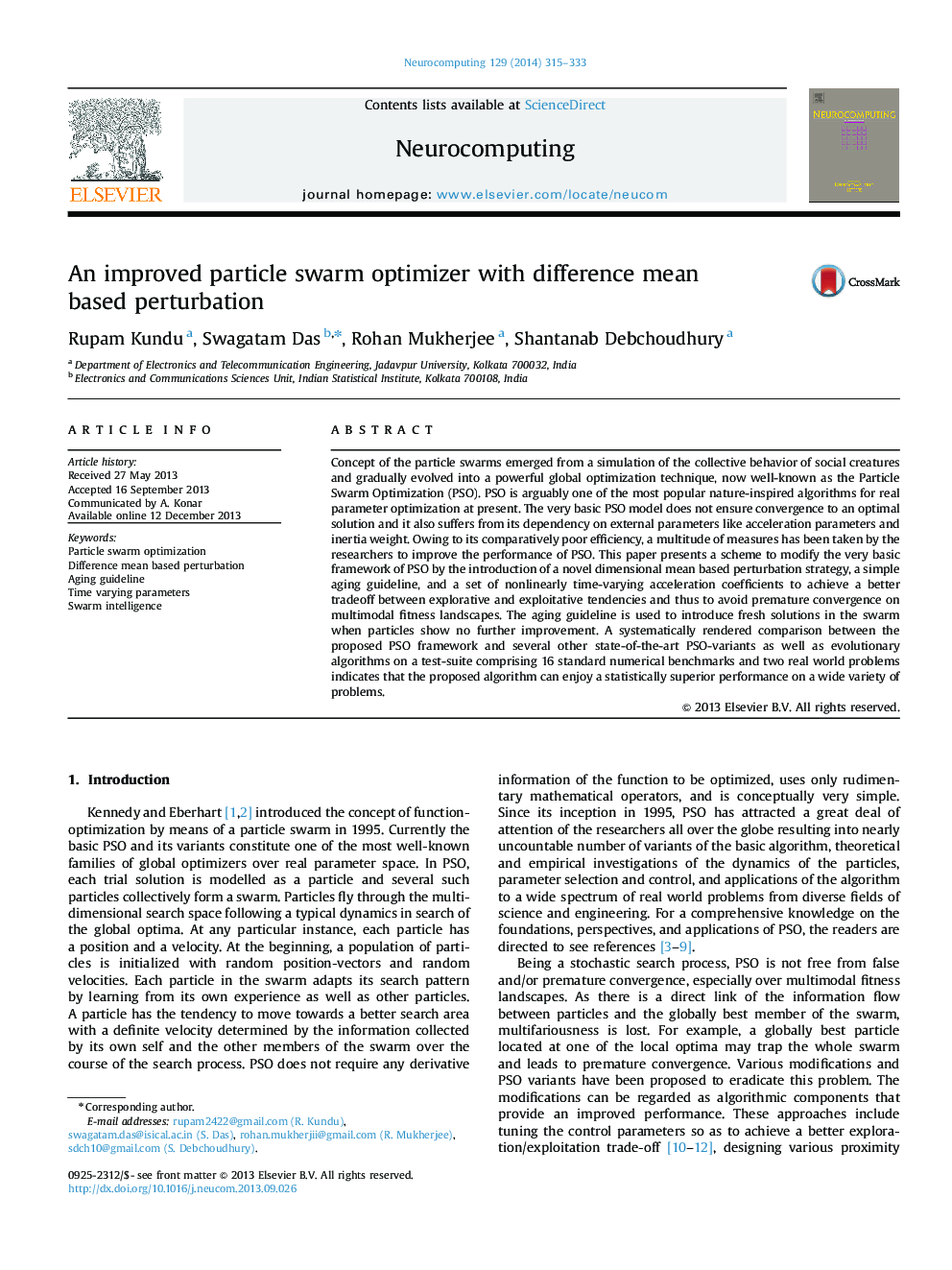| کد مقاله | کد نشریه | سال انتشار | مقاله انگلیسی | نسخه تمام متن |
|---|---|---|---|---|
| 406893 | 678114 | 2014 | 19 صفحه PDF | دانلود رایگان |
Concept of the particle swarms emerged from a simulation of the collective behavior of social creatures and gradually evolved into a powerful global optimization technique, now well-known as the Particle Swarm Optimization (PSO). PSO is arguably one of the most popular nature-inspired algorithms for real parameter optimization at present. The very basic PSO model does not ensure convergence to an optimal solution and it also suffers from its dependency on external parameters like acceleration parameters and inertia weight. Owing to its comparatively poor efficiency, a multitude of measures has been taken by the researchers to improve the performance of PSO. This paper presents a scheme to modify the very basic framework of PSO by the introduction of a novel dimensional mean based perturbation strategy, a simple aging guideline, and a set of nonlinearly time-varying acceleration coefficients to achieve a better tradeoff between explorative and exploitative tendencies and thus to avoid premature convergence on multimodal fitness landscapes. The aging guideline is used to introduce fresh solutions in the swarm when particles show no further improvement. A systematically rendered comparison between the proposed PSO framework and several other state-of-the-art PSO-variants as well as evolutionary algorithms on a test-suite comprising 16 standard numerical benchmarks and two real world problems indicates that the proposed algorithm can enjoy a statistically superior performance on a wide variety of problems.
Journal: Neurocomputing - Volume 129, 10 April 2014, Pages 315–333
